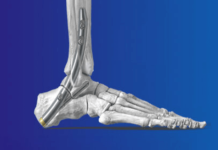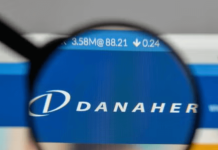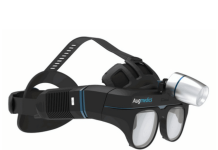The system uses virtual reality and an AI-backed tool.
SyncThink landed FDA clearance for its digital AI-backed system, called the EYE-SYNC, to be used as an Aid to Concussion or mild Traumatic Brain injury (mTBI) diagnosis.
The system includes a web-based platform and a virtual reality headset. Clinicians can input patient information and symptom inventories. The tool is able to conduct 60-second eye-tracking assessments and neurocognitive assessments.
After the assessment is completed, the system is able to create a report that includes metrics, symptoms and visuals about a user’s performance. The tool is also able to tell clinicians about what type of dysfunction was presented and how severe it is.
The CDC reports that there were close to 61,000 TBI related deaths in 2019. The agency says that TBIs can sometimes impact a person’s ability to work, build relationships or change how someone thinks, acts or feels.
The condition disproportionately impacts certain populations, including military members and veterans, people in correctional facilities, people experiencing homelessness, survivors of intimate partner violence, and certain racial or ethnic minorities, including Native American and Native Alaskan individuals, according to the CDC.
“After a decade of clinical research, 30 publications, and 16 patents, we are pleased to formally extend EYE-SYNC’s indications to the many providers who will benefit from rapid, objective diagnostic technology,” SyncThink founder and Stanford University professor, Dr. Jam Ghajar, said in a statement. “Concussion is a complex condition and a challenge for many clinicians to manage, so we hope that by offering highly accurate diagnostic
This isn’t the first clearance for SyncThink. In 2016, the company got the FDA nod for the EYE-SYNC system, but that designation was for recording, viewing and analyzing eye movements to help pinpoint potential impairments. In 2017, the company announced the next generation of its EYE-SYNC platform, which was focused on tracking concussion symptoms with VR.
It hasn’t been all smooth sailing for SyncThink. In 2017, the FDA sent the company a warning letter. The agency said that the company’s EYE-SYNC product was cleared for “recording, viewing, and analyzing eye movements in support of identifying visual tracking impairments in the brain,” however, the company was marketing the tool as a “cognitive assessment/testing of concussions of head trauma.”
In 2018, the company launched a rental program called the SyncThink Express that let college and professional sports teams rent out the technology and get remote support from a specialist.
The company landed an FDA Breakthrough Device Designation as an Aid for Concussion Assessment in 2019.
SyncThink isn’t the only company working in the concussion space. New Zealand Rugby and Rugby Australia announced their plans to test NeuroFlex, an eye-tracking technology that runs on VR, to help measure concussions.




